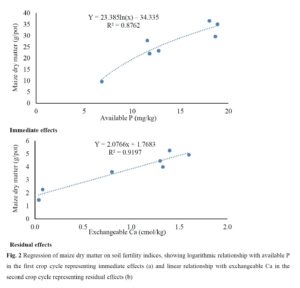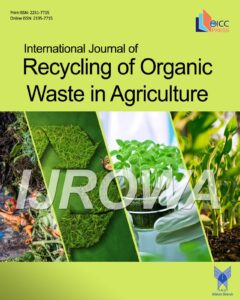
Purpose Takakura Composting Method (TCM) is a simple and cost-effective aerobic composting method using locally available materials and has been widely introduced in Indonesia and other countries. This study tracked the progress of scaling the TCM up to 1 tonne/day of organic waste input at the decentralised composting centre in Bandung City, Indonesia. A comparative […]
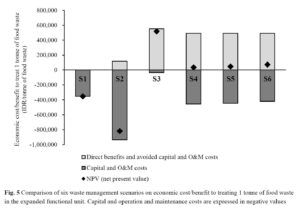
Purpose Poultry litter (PL) and basalt rock powder (BRP) are raw materials highly produced in some Brazilian regions. The association of these products can generate greater added value for the agribusiness chain and be a sustainable source of fertilizer. Method The experiment consisted of an incubation trial over time for chemical characterization of the materials. […]
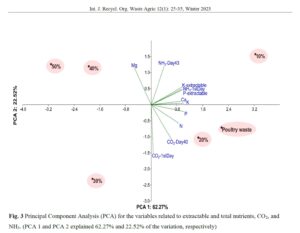
Purpose The main aim of this study was to treat olive mill wastewater (OMW) using a photo-Fenton’s solar reactor; to investigate its potential use as liquid fertilizer and to evaluate its impact on pepper crop. Method Olive mill wastewater was collected in a tank 1000 L and supplemented with 2000 gr FeSO4.7H2o. After that, 150 […]
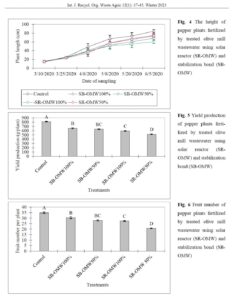
Purpose The leather industry produces huge quantities of proteinous solid wastes and is being dumped or improperly utilized resulting in economical losses or causing an environmental problem. An efficient, low-cost procedure was developed to convert animal fleshings into plant growth promoters (PGP). Method The fleshings were hydrolyzed and analyzed for moisture, fat, ash, and nitrogen […]
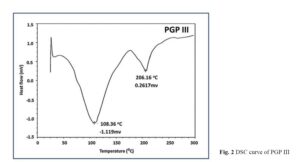
Purpose This study investigated the potentials of crop residues to improve the growth and yield of plantain as well as its proximate compositions. Method Biochar, Cocoa pod husk and Rice bran were applied at the rates 4, 6, 8, and 10 tons/hectare after three weeks of sucker establishment on experimental plots. The experiments were carried […]
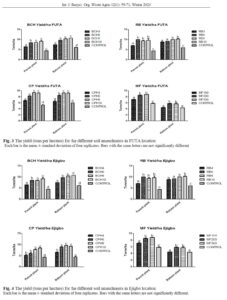
Purpose Coir dust was utilized to manufacture soilless mixture for ornamental plant reproduction. Coconut coir provides more air and moisture to the root zone. Growing medium with coir does not shrink from container walls upon drying. Method This study was performed in a greenhouse, Institute of Agricultural Research, University of Zabol during 2019-2020; the experiment […]
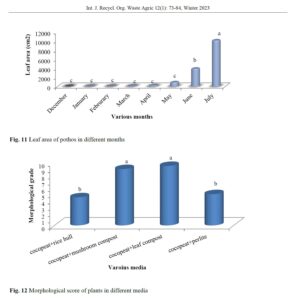
Purpose Rice biomass waste can be used as a soil amendment. This study examined the effect of the application of rice husk biochar and straw compost on several soil properties and yields of rice and soybeans in tropical upland. Method Field experiments were carried out with two applications of rice husk biochar and straw compost on […]
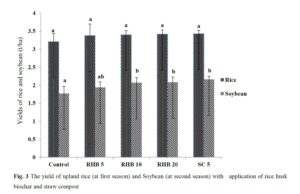
Purpose Organic residues of coffee pulp, sugarcane bagasse and mature bovine manure are a source of organic matter and nutrients for the multiplication of endomycorrhizae consortia. Therefore, the purpose of this research is to multiply the AMFs in such substrates to decrease soil and water pollution. Method A pot experiment under greenhouse conditions was conducted […]
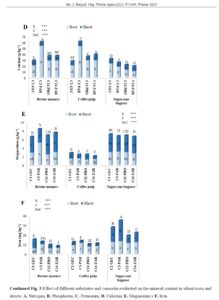
Purpose Our study concerned the recovery and reuse of sludge from aquaculture system implemented in Ain Defla District situated in the North-West of Algeria. As a biotreatment and ecological stabilization technique, vermicomposting of aquacultural sludge with Eisenia fetida earthworms has been advocated. The main goals were to assessthe impact of vermicomposting on the quality of aquacultural […]
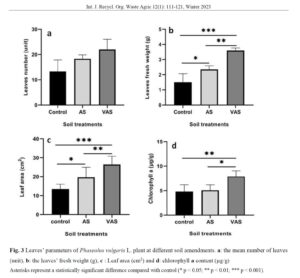
Purpose Scarcity of effective manures frustrates the adoption of organic-based soil fertility management in tropical agriculture. Cattle dung (CD) is hugely generated but underutilised due to its high carbon-nitrogen ratio and low mineralisation rate compared with poultry droppings (PD), hence the need to enhance CD’s efficacy. Method Effects of CD utilisation options on fertility of […]
